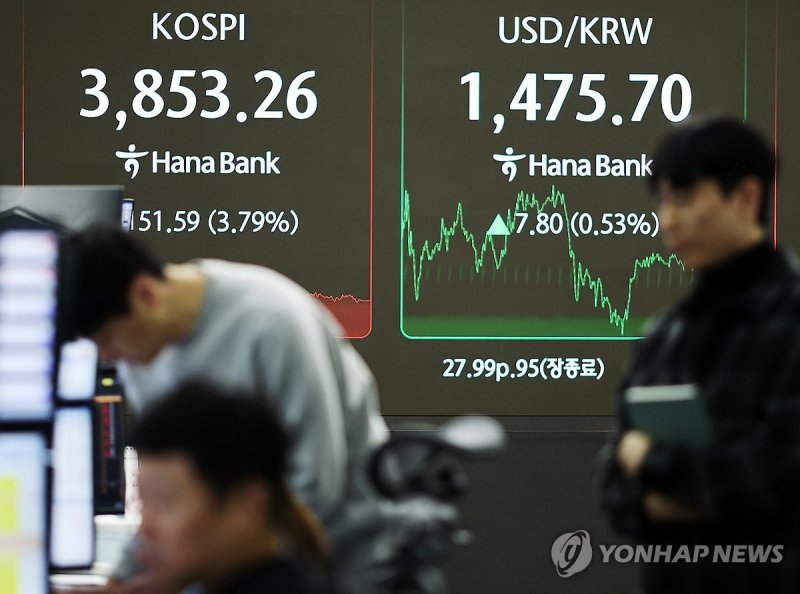[Editorial] Government Holds Meeting on Exchange Rate Measures, Use of National Pension Service Should Be Minimized
- Input
- 2025-11-24 18:26:42
- Updated
- 2025-11-24 18:26:42

A rising exchange rate benefits exports. However, it also raises the price of imports, fueling domestic inflation. In particular, this can further worsen the management difficulties faced by companies in sectors such as aviation, oil refining, and steel, which are already struggling. Both excessive drops and rises in the exchange rate are problematic; maintaining an appropriate level is ideal. The current rate, approaching 1,500 won, should be seen as an excessive increase.
From January to September this year, the cumulative Current Account Balance surplus reached $82.77 billion, about 23% higher than the same period last year. Moreover, Korea has recorded a surplus for 29 consecutive months. Despite this, the exchange rate continues to rise, indicating that even more dollars are flowing out of the country. Typically, a rising stock index leads to dollar inflows and a lower exchange rate, but recently a phenomenon known as Decoupling has emerged between the stock market and the exchange rate.
The recent increase in the exchange rate is mainly attributed to overseas investments by the National Pension Service (NPS) and individual investors. Although Korea earns dollars through trade, it appears that more dollars are leaving the country due to capital outflows. It is also reported that companies are not converting the dollars they earn overseas into won, contributing to the situation.
During past foreign exchange or financial crises, sharp increases in the exchange rate triggered financial instability. However, most experts now believe there is little cause for concern, given that foreign exchange reserves have reached $420 billion—far higher than in previous crises—and other external soundness indicators remain strong.
Nevertheless, as always, it is prudent to respond proactively and be well-prepared. Some experts believe that even the current level is approaching a danger zone or critical threshold. Financial instability can be amplified by psychological factors. If the exchange rate breaks through an appropriate level, anxiety may increase, the supply of dollars in the market may decrease, and a vicious cycle of further exchange rate rises could ensue.
Furthermore, due to trade negotiations with the United States of America (USA), Korea is required to invest $20 billion in cash in the USA each year. Although the government claims that foreign exchange reserves will not be used, these cash investments in the USA could heighten psychological anxiety. Utilizing the National Pension Service (NPS), which holds significant overseas assets, is being considered as a likely measure for exchange rate stabilization. This would involve selling NPS’s overseas assets to lower the exchange rate.
However, there are concerns that such measures could undermine the profitability of the NPS. Even if the NPS is used to defend the exchange rate, its involvement should be kept to a minimum. The best solution is to establish a currency swap agreement between countries. Although a currency swap deal with the USA fell through during trade negotiations, diplomatic efforts must continue. While a crisis may not materialize, rising fuel prices alone are already causing significant public concern.